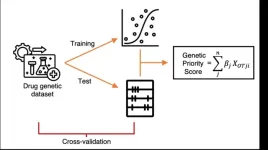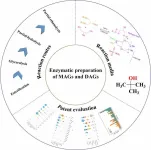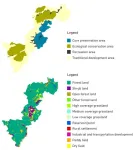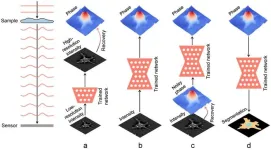The findings were described in the January 3 online issue of Nature Genetics [DOI: 10.1038/s41588-023-01609-2].
Studies have shown that drugs have an increased likelihood of success in clinical trials when the genes they target have been demonstrated to have genetic support. The new tool integrates multiple lines of genetic evidence to prioritize these drug targets.
The score measures the general ability of a gene to be targeted by drugs; genes with a high score in the new tool are more likely to succeed as a drug target. The score identifies both known drug gene targets as well as potential novel therapeutic targets.
“We built a genetic priority score that was inspired by the realization that diverse human genetic data provides insights into drug targets, yet there was an absence of a cohesive strategy for integrating these various data types into an easily interpretable score. So we developed a computational score to prioritize drug targets for enhanced drug discovery," says Ron Do, PhD, senior study author and the Charles Bronfman Professor in Personalized Medicine at Icahn Mount Sinai. “Remarkably, several genes with high GPS were already known to be targeted by approved drugs, providing validation for the new tool.”
The GPS, with its potential to streamline target prioritization, is positioned to have a significant impact on drug development. It offers a valuable resource for researchers seeking to optimize the selection of drug gene targets for enhanced efficiency in the drug development process, say the investigators.
“The rising cost of developing therapeutics, in the billions, is primarily due to high clinical trial failures, underscoring inefficiencies in drug development pipelines. Improving early-stage target prioritization is critical. Studies consistently show that drug indications with human genetic support are more likely to succeed in trials and gain approval,” says study first author Áine Duffy, a PhD candidate in the lab of Dr. Do.
The researchers are encouraged by the developments but emphasize this represents only a first step for prioritization and the need for careful follow-up and further investigation of gene targets with high scores. Next, the investigators plan to refine the model by incorporating additional genetic features and evaluating more sophisticated algorithms for constructing the GPS.
The paper is titled “Development of a human genetics-guided priority score for 19,365 genes and 399 drug indications.” Please see [DOI:10.1038/s41588-023-01609-2] to view competing interests.
The remaining authors, all with Icahn Mount Sinai except where indicated, are Ben Omega Petrazzini (Associate Bioinformatician); David Stein (PhD candidate); Joshua K. Park (MD/PhD candidate); Iain S. Forrest, PhD (and MD candidate); Kyle Gibson (MD candidate); Ha My Vy, PhD; Robert Chen Park (MD/PhD candidate); Carla Márquez-Luna, PhD; Matthew Mort, PhD (Cardiff University, UK); Marie Verbanck, PhD (Université Paris Cité and Icahn Mount Sinai); Avner Schlessinger, PhD; Yuval Itan, PhD; David N. Cooper, PhD (Cardiff University, UK), Ghislain Rocheleau, PhD; and Daniel M. Jordan, PhD.
The study was funded by the following: the NIH T32 Postdoctoral Research Award (5T32HL00782424); the National Institute of General Medical Sciences of the NIH (R35-GM124836); the National Heart, Lung and Blood Institute of the NIH (R01-HL139865) and (R01-HL155915); the French National Research Agency (ANR) (ANR-21-CE45-0023-01); the Leducq Foundation (21CVD01); The Charles Bronfman Institute for Personalized Medicine, Icahn School of Medicine at Mount Sinai; and the Helmsley Foundation Award (2209-05535).
-####-
About the Icahn School of Medicine at Mount Sinai
The Icahn School of Medicine at Mount Sinai is internationally renowned for its outstanding research, educational, and clinical care programs. It is the sole academic partner for the eight- member hospitals* of the Mount Sinai Health System, one of the largest academic health systems in the United States, providing care to a large and diverse patient population.
Ranked 14th nationwide in National Institutes of Health (NIH) funding and among the 99th percentile in research dollars per investigator according to the Association of American Medical Colleges, Icahn Mount Sinai has a talented, productive, and successful faculty. More than 3,000 full-time scientists, educators, and clinicians work within and across 44 academic departments and 36 multidisciplinary institutes, a structure that facilitates tremendous collaboration and synergy. Our emphasis on translational research and therapeutics is evident in such diverse areas as genomics/big data, virology, neuroscience, cardiology, geriatrics, as well as gastrointestinal and liver diseases.
Icahn Mount Sinai offers highly competitive MD, PhD, and Master’s degree programs, with current enrollment of approximately 1,300 students. It has the largest graduate medical education program in the country, with more than 2,000 clinical residents and fellows training throughout the Health System. In addition, more than 550 postdoctoral research fellows are in training within the Health System.
A culture of innovation and discovery permeates every Icahn Mount Sinai program. Mount Sinai’s technology transfer office, one of the largest in the country, partners with faculty and trainees to pursue optimal commercialization of intellectual property to ensure that Mount Sinai discoveries and innovations translate into healthcare products and services that benefit the public.
Icahn Mount Sinai’s commitment to breakthrough science and clinical care is enhanced by academic affiliations that supplement and complement the School’s programs.
Through the Mount Sinai Innovation Partners (MSIP), the Health System facilitates the real-world application and commercialization of medical breakthroughs made at Mount Sinai. Additionally, MSIP develops research partnerships with industry leaders such as Merck & Co., AstraZeneca, Novo Nordisk, and others.
The Icahn School of Medicine at Mount Sinai is located in New York City on the border between the Upper East Side and East Harlem, and classroom teaching takes place on a campus facing Central Park. Icahn Mount Sinai’s location offers many opportunities to interact with and care for diverse communities. Learning extends well beyond the borders of our physical campus, to the eight hospitals of the Mount Sinai Health System, our academic affiliates, and globally.
-------------------------------------------------------
* Mount Sinai Health System member hospitals: The Mount Sinai Hospital; Mount Sinai Beth Israel; Mount Sinai Brooklyn; Mount Sinai Morningside; Mount Sinai Queens; Mount Sinai South Nassau; Mount Sinai West; and New York Eye and Ear Infirmary of Mount Sinai.
END








